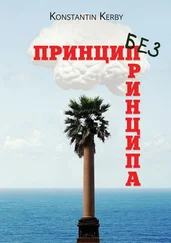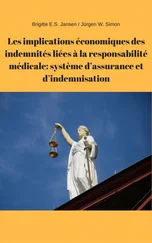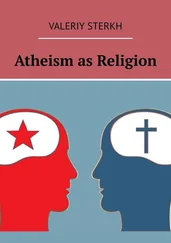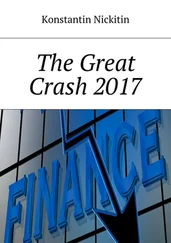In general, it can be said that every person from birth is influenced by upbringing, culture, national characteristics, traditions of their country, the spirit of the era, and other social factors. On the other hand, a person has his own inner “self”; he is a personality, he can mature his own point of view, and he may even dare to challenge the traditional foundations of society. If there are enough such people, a certain critical number, then a social revolution may occur.
The same happens in religions. It is impossible not to notice that social revolutions, or significant transformations in a state, are immediately reflected in religion in this state. [59] . An illustrative example can be the history of the emergence of the Church of England, the transformation in France during the Great French Revolution.
Конец ознакомительного фрагмента.
Текст предоставлен ООО «ЛитРес».
Прочитайте эту книгу целиком, на ЛитРес.
Безопасно оплатить книгу можно банковской картой Visa, MasterCard, Maestro, со счета мобильного телефона, с платежного терминала, в салоне МТС или Связной, через PayPal, WebMoney, Яндекс.Деньги, QIWI Кошелек, бонусными картами или другим удобным Вам способом.
. John Hogan, Scientific American , December 1, 2014.
. Франк, Смысл жизни , 19. [Hereinafter, everywhere all translations from Russian are made by the author.]
. For more information on qualia, see: Волкодав, Эволюция , 139.
. A translation from Russian to English.
. The video footage of this debate on https://www.youtube.com/watch?v=uSwJuOPG4FI in eight years have been watched by more than forty one million people.
. The Edict of Milan (Lat. Edictum Mediolanense) of 313 proclaimed religious tolerance in the territory of the Roman Empire, and Christianity became legal.
. See Vilenkin, Many Worlds in One , Part IV—Before The Beginning. Chapter 16—Did The Universe Have a Beginning? Beyond Unreasonable Doubt.
. Quoted from: Wetter, A Historical and Systematic Survey , 436.
. Legler wrote that during all periods of Soviet history from the 1920s to the time of writing the book (1985), Soviet science (all its areas, including natural sciences) was under the influence of the state (atheistic) ideology. See Леглер, Научные Революции при Социализме .
. Academician Nikolai Vavilov (1887–1943) died on death row. He was a famous geneticist, vice president of the All-Union Academy of Agricultural Sciences. In 1948, all genetic research in the USSR was discontinued. Hundreds of leading professors and instructors have been fired. Biology books based on genetics were seized and destroyed from libraries.
. David Hume (1711–1776) was a Scottish Enlightenment philosopher, historian, economist. An Enquiry Concerning Human Understanding (1748) contains reworking of the main points of the “Treatise”, with the addition of material on free will, miracles, the Design Argument, and mitigated scepticism. Section 10, On Miracles , of the Enquiry, was often published separately.
. Lat. “ex nihilo nihil fit”.
. In 2003, cosmologists Arvin Borde, Alan Guth, and Alexander Vilenkin proved the singularity theorem. It says that the expanding space time does not continue infinitely into the past, but has a beginning, that is, the universe has a beginning. See Borde et al., “Inflationary space-times are not past-complete.”
. “In 1973, I proposed that our Universe had been created spontaneously from nothing (ex nihilo), as a result of the established principles of physics,” Edward P. Tryon (prof. of Physics, New York University), “What Made the World?” 14.
. Климишин, Релятивистская астрономия , 243.
. Зельдович, “Возможно ли образование Вселенной ‘из ничего’?” Природа 4 (1988).
. However, in the Afterword to it, Academician A. D. Sakharov considered it necessary “to point out the great uncertainty in our understanding of the situation. This uncertainty is deeply fundamental, even philosophical. Philosophically acute is, in particular, the question of the so-called anthropic principle, which explains the peculiarities of our universe by the fact that only in such a universe could intelligent life arise, in contrast to an infinite number of other, spontaneously arising ‘dead’ universes.”
. Krauss, A Universe from Nothing , Preface.
. Albert Einstein remarked on this topic, “The only thing that interferes with my learning is my education.” (Quoted from: https://www.brainyquote.com/quotes/albert_einstein_110208)
. Krauss, A Universe from Nothing . Ch. 10: Nothing is Unstable, 154.
. Krauss, A Universe from Nothing . Preface, 18.
. Isaac Newton (1642–1727). In Brewster, Memoirs of Newton (1855), vol II, Ch. 27. https://www.brainyquote.com/quotes/isaac_newton_387031
. Vilenkin, “Creation of Universes from Nothing”, 25–28.
. “That same Munchausen” is a Soviet artistic two-part television movie in 1979. The play “The Most Truthful” by Grigory Izrailevich Gorin served as the literary material for the script. It was written in the play, “A serious face is not yet a sign of intelligence, all stupidity on Earth is done with just such an expression.” However, when dubbing the movie, Yankovsky made a reservation, saying, “A smart face is not yet a sign of intelligence.” In this form, the phrase, despite G. Gorin’s protests, remained in the movie.
. For example, in the order of the Liturgy in the priestly prayer of the Trisagion Singing (“Who from non-being has brought all things into being”), in The Funeral Service—Eulogetaria for the Dead (You who of old did fashion me out of nothingness, and with your Image Divine did honor me), which was written by St. John Damascene, etc.
. John Chrysostom, In Gen . 13. 2; Cyr. Hieros. Catech. 4. 18; Nemes. De nat. hom. 2; Theodoret. Haer. fab. V 9; Hieron. Adv. Rufin. II 10; 5th anathematism of the Council of 561 in Braga—Enchiridion symbolorum. N 455; The fact that everything created was brought into being out of nothingness was written by St. Gregory of Nyssa, St. Basil the Great, St. Athanasius the Great.
. St. Basil the Great. Hexameron (Six Days of Creation).
Читать дальше
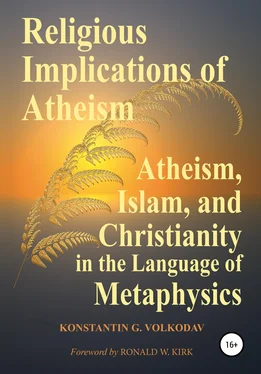
![Константин Бальмонт - Константин Бальмонт и поэзия французского языка/Konstantin Balmont et la poésie de langue française [билингва ru-fr]](/books/60875/konstantin-balmont-konstantin-balmont-i-poeziya-francuzskogo-yazyka-konstantin-balmont-et-thumb.webp)

